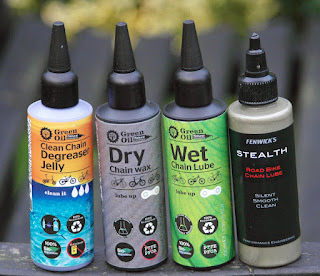Managed to steal away to the
midlands for a few days and got a look at John Moss’s new fully faired Sinner
Mango. He only took delivery the week before and I first spotted him whizzing
past on Christmas morning while I washed and waxed my KA.
Frustrated at finding myself
bereft of camera, thus missing that moment, I subsequently emailed John and we
arranged to meet before he headed out for a Boxing Day blast down to his
sister’s.
Speaking of the elderly
eight-valve Ford, 150,000miles marked another full service (£122 including
parts, labour and VAT). This basically consisted of 10w/40 engine oil, filer,
pollen filter, grease and other top-up fluids.
Christmas night was spent
doing some light trace photography, which drew the attention of several passers
by and of course, the law. Thankfully, everyone was brimming with seasonal
cheer and ultimately, left me, tripod and Samsung mini CSC unmolested.
John has taken the
electronic option in case he should run out of grunt many miles from home but
has been topping 33mph on the formative, local outings and under his own steam.
Glancing inside the Kevlar
shell finished in yellow 2pac and integrated electrics/lighting aside; the
layout is reminiscent of Mike Burrow’s iconic Speedy/similarly high end
recumbent trikes. Twist grip shifters
command a Rohloff hub transmission and more traditional front mech, double ring
set up.
He’s added a bit more
cushioning around the headrest and is sticking with the hard shell, all weather
cover. Suffice to say, he’s delighted, less so the couple’s cat’s, who are now
barred from the workshop!
Elsewhere, rumour has it Lee Cooper is
making a return to building under his own name and Heidi, my intern has been
working on the social side of Stenning photographic. I have already lined up
some interesting photographic projects and working on relocation. A new batch
of test kit is also keeping me productive and out of mischief during the
corridor between Christmas and New Year.
Contact points are extremely
personal, so guaranteed to divide opinion. In terms of damping and control,
I’ve always liked Lizard Skins DSP range, although it’s much higher maintenance
than corks or similarly traditional coverings. Silicone rubber is beginning to
enter the fold.
After six months daily
service and despite some tell-tale stretch marks (resultant from minor
over-tensioning), the Genetic wrap remains in rude health six months and many
mucky miles hence.
Widget components also offer
a similar covering, this time with a dimpled texture for improved grip in
really wet, slippery conditions. This one costs a few quid more and comes in
five colours, complete with expandable wedge plugs.
The naturally sticky texture
rules adhesive backings redundant, meaning it’s easily unwound to correct aesthetic
imperfection and doesn’t render it bin fodder in the event of cable replacement
or handlebar swaps.
Most coverings are pretty
generous these days to accommodate broad, oversized drops, so I wasn’t
surprised to discover eight inches or so apiece leftover on these curvy Salsa
Bell Lap-even with double ups.
Our green was interesting
too. Aside from being an obvious choice for the teenage dream, it appears to
change colour depending on the light-fluorescent when it’s overcast, less
garish in brighter conditions.
Thus far, purchase, comfort
and control are living up to the hype and while greater owner involvement is
needed to keep it clean, compared with corks and leatherette types it’s not
proving highly strung in that respect either.
Right; back to testing-lots
of blinkies and commuter combos to put through their paces, some 700x25c tyres
and strategies to complete before mid January 2016.




















































